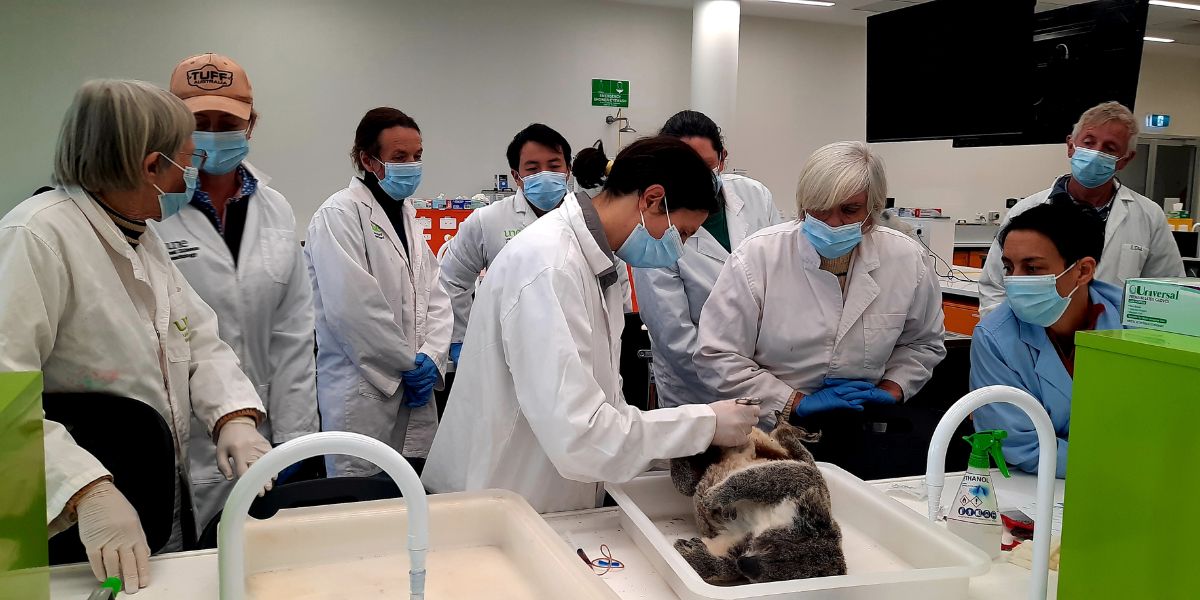Southern New England Landcare has successfully delivered the first professional veterinary training course focused on koala health in the Northern Tablelands.
Held on August 25 to 25 at the University of New England, the course brought together 20 veterinarians from across the Northern Tablelands to strengthen their skills in koala-specific medical care.
“This course was designed to build local capacity for treating sick, injured, and orphaned koalas, supporting better health outcomes, and it will also reduce the need for long-distance transfers to specialised facilities, which is stressful for koalas in care.” said Local Koala Conservation Project Officer, Thaw Zaw.
“It forms part of a broader initiative to improve wildlife healthcare in the Northern Tablelands.”
The koala, one of Australia’s most iconic species, has been listed as endangered since 2022 due to habitat loss, disease, and other threats.
Wild koala populations have declined by an estimated 50 to 60 per cent over the past 20 years.
“Koalas require highly specialised veterinary care during rehabilitation,” said Astrid Aggelen, trainer from Koala Conservation Australia.
“But local veterinarians face challenges because koala care requires specific veterinary and rehabilitation training, that is not included in standard veterinary medical curriculum,” she said.
To address this gap, Southern New England Landcare coordinated the intensive workshop, empowering local veterinarians to assess, treat, and manage koalas more effectively.
The course was hosted by the University of New England and delivered by Koala Conservation Australia.
“By providing local vets with targeted medical training, we can improve koala welfare, increase positive outcomes, decrease costs, and reduce the need for long-distance transfers,” said Astrid.
Participants found the course very helpful and welcomed the initiative.
“The workshop was invaluable, because the participants learned specific medical requirements for koalas directly from experienced specialists from Koala Conservation Australia,” said Thaw.
“It was an excellent opportunity to build our local capacity,” she said.
This initiative was funded by Southern New England Landcare’s 2025 Community Capacity Project and supported by the NSW Koala Strategy through the NSW Department of Climate Change, Energy, the Environment and Water (DCCEEW).
Something going on in your part of the New England people should know about? Let us know by emailing newsdesk@netimes.com.au

